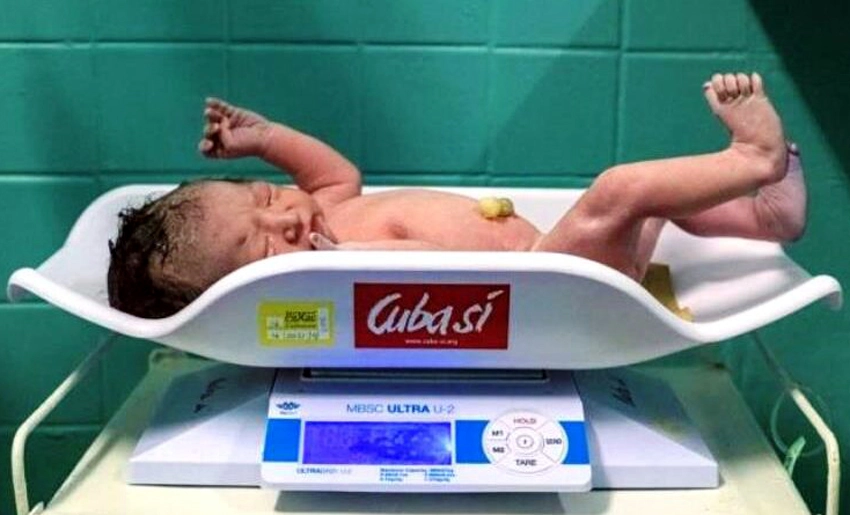The Mother and Child Care Program (PAMI) in the province of Holguin closed year 2023 with favorable indicators in the care of pregnant women and the reduction of risks in these vulnerable sectors, analyzed today during its annual meeting.
This eastern territory, the third most densely populated in Cuba, has a wide geographic complexity with rural areas, difficult access and a high number of births, which makes primary care control and preconception reproductive evaluation fundamental factors.
In addition, the quality of childcare and exclusive breastfeeding in the first six months of life are taken into account, as well as the analysis of low, medium or high risks for income in maternal households.
Alberto Rubén Piriz Azza, head of this program, told ACN that the province had more than 8,000 births and among the main mortality indicators are low birth weight, uterine growth restriction and preterm birth.
The territory also has a decrease in maternal and children death rates, at the same time it has more than 233,000 women of childbearing age, and is working on the reduction of anemia, diabetes control and hypertension, he said.
Among the achievements are the detection of more than 96 percent of congenital malformations and more than 200 pregnancies in assisted reproduction services, said the specialist in first and second degree of Intensive and Emergency Medicine.
During the meeting, held at the Expo Holguin fairgrounds, the intersectoriality was discussed as a way to achieve these objectives, involving Sports, Culture and Education, to provide a better quality of life to adolescents and thus reduce pregnancy rates at this age.
Julio Yamel Verdecia Reyes, General Director of Public Health, highlighted in the analysis the importance of completing the income capacities in maternal homes and specialized institutions as a follow-up tool.
He highlighted the relevance of nutritional studies and complementary controls, which offer an insight into the health of mothers and have among their objectives the reduction of pre and postpartum hazards.
Ernesto Santiesteban Velázquez, member of the Central Committee of the Communist Party of Cuba and first secretary in the province; Manuel Hernández Aguilera, governor of Holguín and other local authorities participated in the meeting.
PAMI emerged in Cuba in the 1960s to offer specialized medical care and genetic follow-up to pregnant women through more than 16 consultations and some 30 free diagnostic tests, carried out in hospitals and polyclinics throughout the nine months of gestation.
With information from Prensa Latina
- WFP in Holguin presents program’s impact on school nutrition - 9 de May de 2024
- President Díaz-Canel at Eurasian Economic Council meeting - 8 de May de 2024
- In Holguin Romerías de Mayo sow friendship in Cuba - 8 de May de 2024

